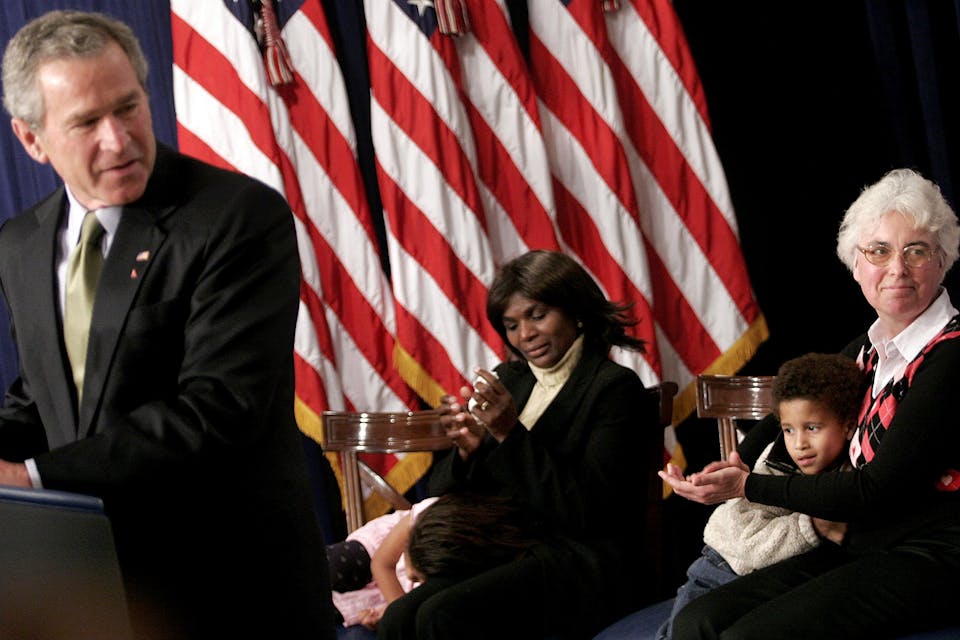
February 13, 2023
The Life and Times of the Faith-Based Initiative
Religious organizations need a voice inside the federal government. Is the twenty-year-old office still up to the task?
In the minds of many Americans, the First Amendment and the doctrine of separation of church and state mean that the government has no business working with religious organizations in any capacity. This assumption—as flawed as it is fervently and widely held—for a long time led government agencies to shy away from any kind of partnership with religious organizations in solving social ills. The consequences of such thinking have been anything but salutary. Prior to World War I, it was taken for granted that feeding and clothing the poor, combating alcoholism, helping the indigent find work and affordable housing, and even combating epidemics were the tasks of private charities rather than the state. With the Depression, the New Deal, and later Lyndon Johnson’s Great Society, the U.S. government created a massive welfare bureaucracy dedicated to playing all these roles, leaving religious and secular philanthropies simply to fill in the gaps.
But by the 1990s, it became abundantly clear that there were many social ills the government was poorly suited to solving. A host of well-intentioned programs merely fostered dependency, exacerbated the problems they had sought to alleviate, or created new and unforeseen ones. During his 2000 presidential campaign, George W. Bush became convinced that America’s myriad religious groups could do a much a better job. Where the federal government could have someone fill out a form and then send him a check, a faith-based organization could know people personally and provide a dose of spiritual succor to the impoverished and dislocated. Since government agencies had already concluded that they could accomplish much by providing grants to private institutions and working with them in various ways, why shouldn’t they do the same with religious groups?
The usual answer to that question, on the rare occasions that it was asked, was that to do so would violate the principle of church-state separation. But Bush sought to challenge that assumption. There is in fact no constitutional limitation on the government working with religious organizations that provide charitable services to individuals, so long as they do not discriminate in the provision of those services. That is, a Jewish group can receive a grant to run a kosher soup kitchen if it welcomes Jews and Gentile alike. Second, many religious organizations involved in charitable work are very good at what they do, and it is in the interest of the nation, the United States government, and the people in need themselves that the distributors of government resources be effective and have strong connections with their local communities so as to be aware of the specific interests of those they serve.